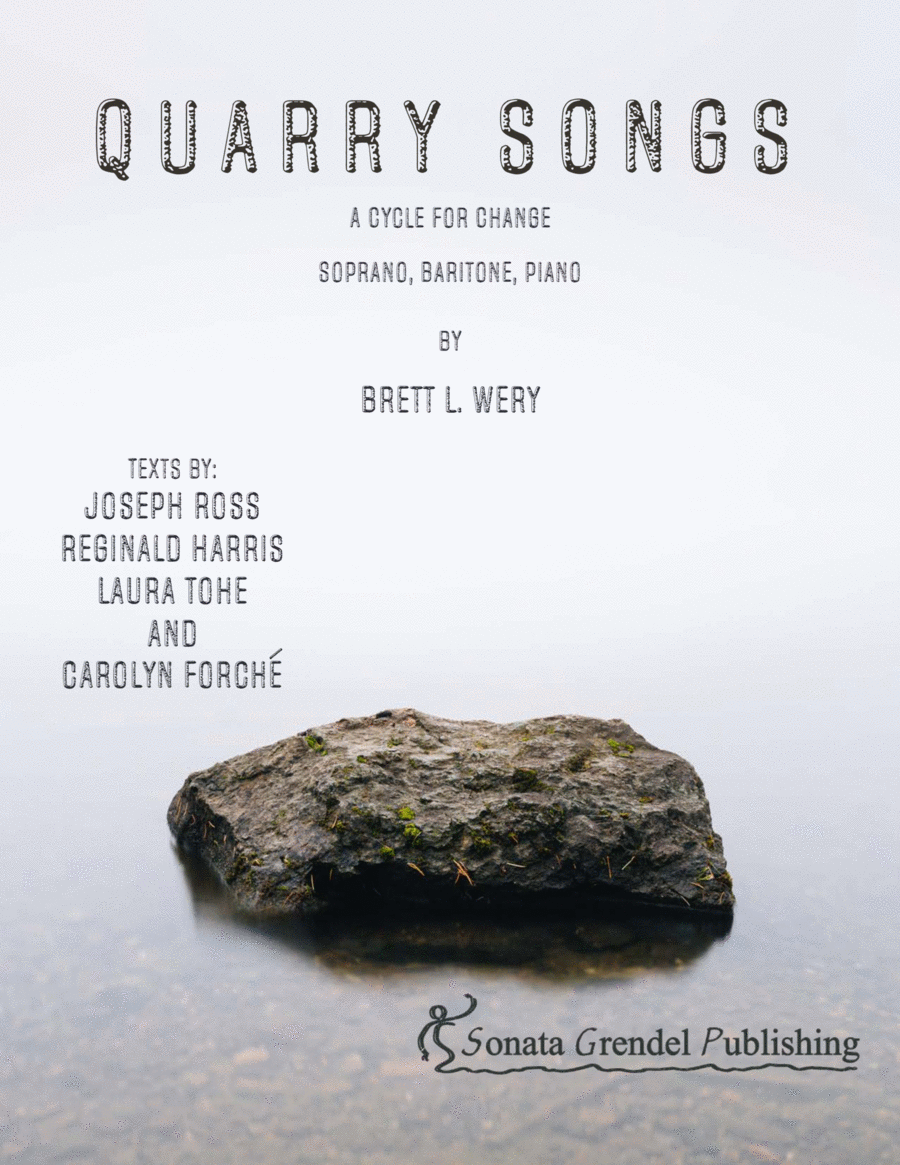Piano,Voice Duet Baritone Horn TC,Piano,Soprano voice - Level 5 - Digital Download SKU: A0.1101414 Composed by Brett L. Wery. Chamber,Classical,Contemporary,Multicultural,World. 52 pages. Sonata Grendel Publishing #704802. Published by Sonata Grendel Publishing (A0.1101414). I. Hammering on Rocks text by Joseph Ross II. Normal text by Reginald Harris III. My Body Holds Stones text by Laura Tohe IV. The Museum of Stones text by Carolyn Forché. Quarry Songs were written as a project initiated by my long-time friend and colleague, Mark Evans. Mark and I have spent hundreds of hours rehearsing and performing together so when he asked me to participate in a project to create a song cycle as part of a residency at the Avaloch Farm Music Institute in New Hampshire, I said yes immediately. Joining us were former students, now colleagues, Areli Mendoza-Pannone (soprano) and Robert Frazier (baritone). During our residency at Avaloch, the trio and I organized Zoom meetings with the poets and work-shopped many sections of the songs. I am immensely grateful for the contributions Mark, Areli, and Bobby made to this piece. I am especially indebted to the four amazing poets for their powerful, inspiring poems. These are works of courage, honesty, and craftsmanship and I’m humbled by the writer’s trust and generosity as I attempt to add a dimension to their work that is worthy of the source. The poems represent varied American perspectives of the artifacts of human existence and the trajectory of our culture(s), the human capacity to grow numb to suffering, the weight and cost of identity—self imposed and projected—on ourselves, our nation, and our children. Most importantly the poems witness our power to change the world through art. These poems recall the courage of Nelson Mandela, the paralysis that comes with the twenty year old war in Afghanistan, the lasting wounds of inflicted upon children in boarding schools designed to eradicate native cultures, and the markers of war and suffering that call as much for hope as for remorse. I chose poets whose voices represent not only suppressed perspectives but also the voices of Americans born of privilege, willing to use the power of art to focus the readers’ minds on the rough truths of our shared history as Americans.
